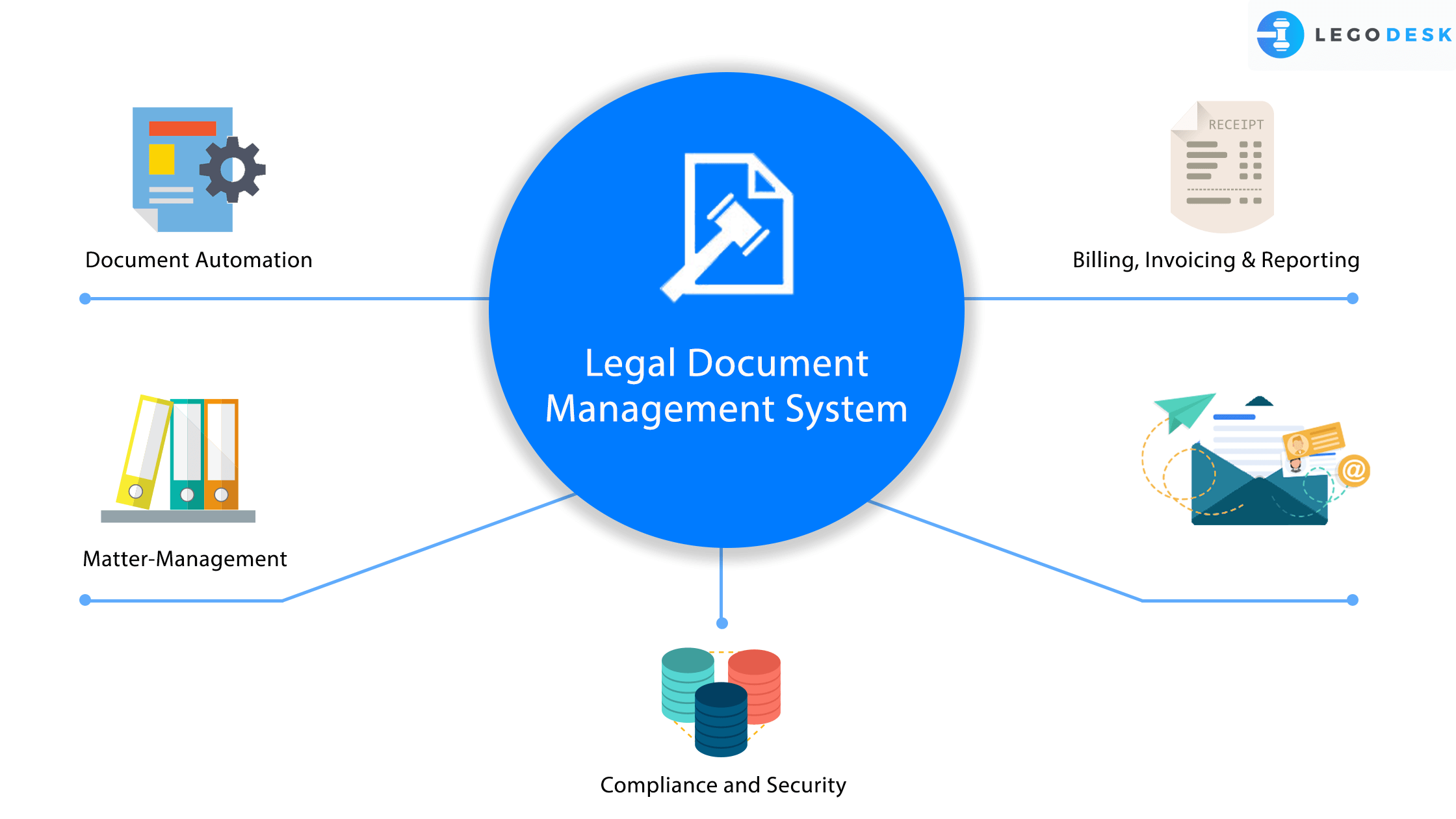
Earlier, the lawyers/firms had to struggle a lot in organizing and storing the documents. But with the advent of the online system, firms can easily manage the documents through a Legal Document Management System.
A legal document management system is designed to help lawyers organize, storage, and manage all their case and client related documents securely.
Unlike other Document Management Systems (DMS) -such as MS Office, Adobe, etc.- which offer generic features to cater to multiple industries, legal document management systems provide specific and unique features that are unique to the legal field. Naturally, the legal DMS increases the productivity and workflow of lawyers more effectively and efficiently.
Read Also – Advantages of a Cloud-based Legal Document Management Software
What is Legal Document Management System?
The legal DMS is an application designed to organize digital and paper documents. A good legal DMS provides functions like:
- Converting paper documents into digital form.
- Securing documents with high-ended accessibility permission.
- Managing documents by categorizing.
- Retrieving the documents from keyword searches and archiving the documents.
- and other customizable features
How legal DMS differs from Case Management System?
The Case Management System is related to administering the various aspects of the cases and is not limited to documents. Whereas, legal DMS deals with the documents created outside the CMS that are needed to supplement the case file such as contracts, agreements, pleadings, etc.
Read Also – Importance of Document Management System for Lawyers
Does your law firm need Legal Documents Management?
To answer the above question, ask yourself the below points:
The Firm;
- Wants to operate paperlessly and eliminate the number of paper files.
- Needs a matter-centric organization for the documents.
- Requires organized documents.
- Requires a process to keep the document edited and updated.
- Needs scanned images to automatically be OCR’d.
- Wants to have scanned copies or FAX directly to the storage system.
Read also – How Legal Practice Management Software Can Help Law Firms
If the answer to any of the above points is ÝES’ then the firm should look forward to implementing the Legal Document Management System.
Now, the next question arises: what functions the Legal Document Management Systems must-have?
Different Legal Document Management Systems have different functions. But below are the main functions, which the firm should look for:
Read Also – Top 5 Features in a Legal Document Management Software
1. Matter-Centricity:
Law firms that use this model are able to capture all the information relevant to a legal matter in a single, centralized location – including email and paper. It is tough for the lawyers to organize and store everything in a storage cabinet. So, the matter-centricity DMS gives access to its user to create a matter, which will act as a virtual cabinet for managing and storing the documents/files, email, and other notes for that matter.
Therefore, it becomes convenient for the law firm to access and manage all the matters on a single platform.
2. Email Management:
The content of the Email is just like any other document for the law firm. A Legal DMS can store, index, and manage the emails in the same way as it does for the documents. It also integrates with the mailbox so that the firm members can save emails directly to a matter. Additionally, it provides a feature of auto-reply which is convenient for the lawyers to manage the emails on time.
3. Billing, Invoicing, and Reporting:
The legal DMS allows lawyers to measure the billing hour of each client accurately. The authorized users can manage the cost of components, refund status, and credit with ease. Additionally, as per the billing cycle, the users can also generate automated invoices on a timely basis.
Apart from the billing and invoicing, the legal DMS also provides weekly, monthly, and yearly financial reports to the firm for lawyers to take important decisions, manage the workforce, and help them focus on streamlining their workflow.
4. Document Types & Tagging:
Law firms deal with different types of documents like contracts, orders, motions, agreements, complaints, pleadings, and so on. Therefore, identification of the exact type of each document in the Legal DMS is important. This can be done by Tagging or Profiling the documents. Tagging or Profiling makes it easier to categorize and thus, it becomes convenient to assess the type or nature of the document at a glance.
5. Compliance and Security:
Protection of confidential and sensitive data is an utmost priority for lawyers. A good Legal DMS comes with high-grade encryption technology to protect the data from any kind of hacking or unauthorized access. Additionally, the legal DMS are cloud-based so it automatically upgrades the latest version of security.
Therefore, a Legal DMS can help maintain the industry compliance by enabling security encryption.
There are other Features in Legal Document Management Software that any lawyer should absolutely look for.
Lastly, there needs to be a deep analysis of the needs and requirements before choosing legal DMS for your law firm. The implementation of legal DMS is a quite technical process so it is recommended to either hire a consultant or contact a service provider for the same.
Read Also – Document Management: Not Just a ‘Record Keeping’ Method
If as a law firm, you are looking for ways to streamline the workflow and increases the productivity of the firm, which ultimately provides an edge over the competitors, you should absolutely go for a smart legal document management system? Try Legodesk, for free today.

